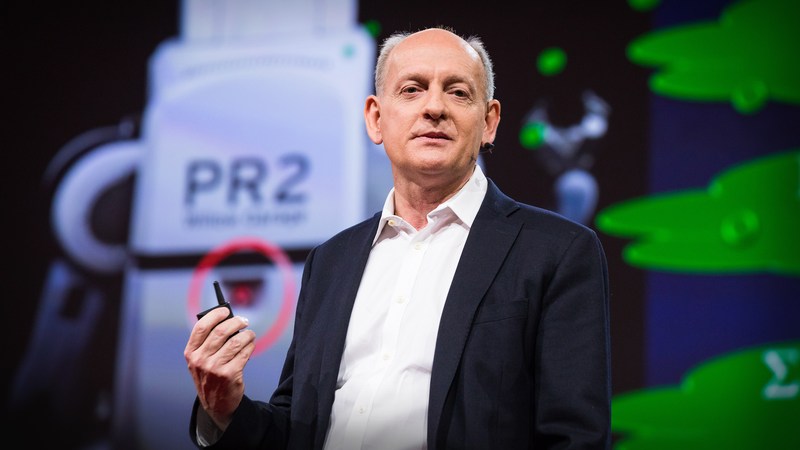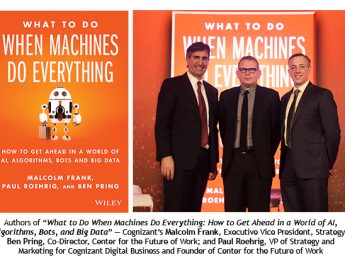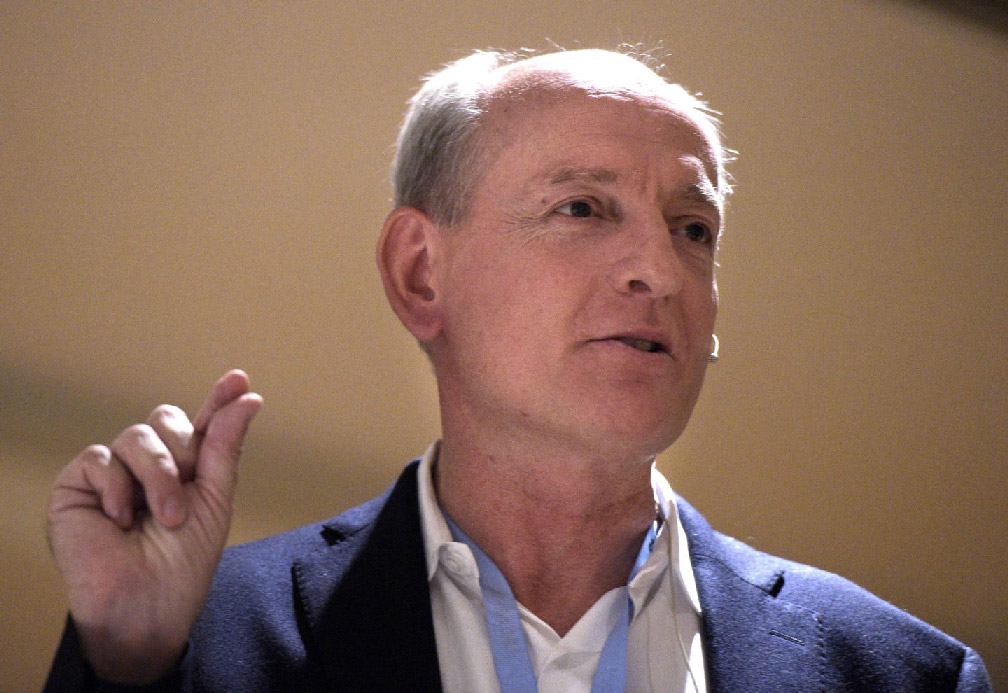One of the big themes this here at Davos is Artificial Intelligence. Machines are beginning to drive cars, they’re beginning to understand us, and speak to us -not perfectly-. They’re beginning to see better than humans can. This is good for Humanity and the Economy.

Hub Culture Executive Editor Edie Lush talks to various experts about how Artificial Intelligence is effecting the world we live in.
Erik Brynjolfsson, Professor at MIT and co-author of “The Second Machine Age”
“We’re creating more wealth than ever before more millionaires, more billionaires, GDP is an all-time high but the same time a lot more people are being left behind. Median income that is the income of the 50th percentile is lower now in the United States and other advanced countries than it was back in the year 2000. So at least half the population isn’t participating and all this wondrous wealth is being created and that’s creating challenges you’ve seen in the recent elections that a lot of people are angry about that they feel like the system isn’t working for them.”
Malcolm Frank of Cognizant and co-author of “What To Do When Machines Do Everything
“I don’t think a robot will take your job. But people are very concerned about its very much in the Zeitgeist. We think 2017 is the year that artificial intelligence goes mainstream and people are concerned. Because you look at games of intellect when the machine can win a chest when it can beat any human it GO that is a real concern to folks when we look in the paralegal business that artificial intelligence platforms can easily out-execute a crack team of paralegal white-shoe law firm. In radiology, I think in 10 years will be malpractice if you go to a human radiologist because we see the machine-like with mammography has more than a ninety-nine percent accuracy. Whereas you know one out of five human will actually make a mistake in that process so when people think that through the searches think is the Machine going to start to eat white color work and what does that mean to me it’s a big big issue..”
So what are the positives? How’s it going to help me. Here’s what Cathy Bessant of Bank of America told me about how she was going to put consumer and market data to work.

Cathy Bessant of Bank of America
“Well we might watch the transactions that you do with us. We might understand on your history we could see that you brought it up airline ticket to go to a particular destination. We can put all of that together for you to help prevent fraud. We can help you have at your fingertips information about the kinds of transactions you might want to think about if a balance is getting low and we know you’re going to be an active user because you’re traveling. Nothing not the kind of insights that cross the creepy line but the kind of insights that really add value to you in ways that you might not even know would be helpful.”
The distributed power that eBay gives its users is enhanced by AI. Here’s what Dan Tarman tells..
Dan Tarman of eBay
“We are utilizing artificial intelligence to help create a more personalized shopping experience for people. We use algorithms today we can help someone that we can help better understand what a buyer might want to either behavior patterns on our platform that means that we can better match someone is supplying something seller someone is looking for something.”
Artificial Intelligence is already bursting onto the scene in health. Fabien Beckers is bringing medical imaging and AI together to help doctors better diagnose patients.
Dr Fabien Beckers of Arterys
“In the case of the heart, the heart is a pump two main chambers ventricle and doctors have to basically draw contours two segment’s those chambers hundreds of pump each time that is a lot of manual work and here deep learning can basically decide itself itself find ventricle and quantify them for doctors he doesn’t have to do it. Half an hour two number work it is full your made it.”
There’s no doubt that the stakes are high. Stuart Russell from the University of California-Berkeley.

Professor Stuart Russell of University of California at Berkeley
“The general problem you know we might call the King Midas problem. You ask intelligent machines to do something and it takes you very literally does exactly what you say and then you regret it right and we only have one human race we don’t get to have a do-over right. So the big question is how do you get machine to behave in a way that’s guaranteed not to make you unhappy. Particularly when you actually don’t know what you really want and you don’t know what’s going to make you unhappy. So getting the field to agree that the problem is the first step, second step is what do about it. We’re starting to actually have a mathematical theory of machines that approvably beneficial in a sense that you approvably better off with this machine them without. It turns out that the key to that is that the machine should be explicitly uncertain about what it is that you want.”
Of course one of the reasons were so interested in AI here and have cultures that were building our own Artificial Intelligence.
Stan Stalnaker of Hub Culture about zeke.ai
“zeke.ai. what we call an Emergent Intelligence so it is AI but you know what kind of starting out is what we call EI and the point of the project is to develop a kind of new entity, a new idea, a new tool and a new personality to assist hub culture and the ecosystem and a variety of tasks.”
2017 is going to be the year that AI goes mainstream.





Again it is a little bit like atomic energy. Very useful and safe as long as one knows how to harness it and I hate to use this word regulate it
Same thing for AI.